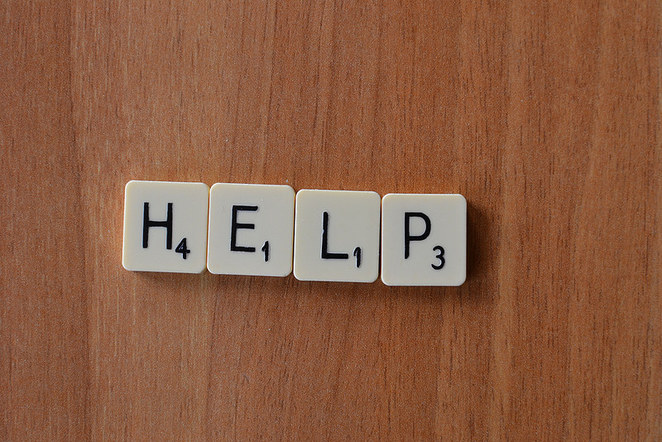I'll be the first to admit that asking for help for a personal problem is hard, very hard. Not only is it hard to admit to ourselves that we have a problem, but telling someone about it makes us feel vulnerable to their judgement. In my experience as a therapist, I would say that fearing being judged is one of the major reasons asking for help is so hard to do. When we seek therapy or help from others, we are putting ourselves out there openly and that's scary. We may fear being labeled as crazy, unstable, or worse of all, weak. So naturally, it's safer to go on trying to deal with our problems on our own.
Another reason getting help is so hard is trust. So even if we don't care or fear being judged, we may not fully trust that asking for help will yield anything helpful. We may convince ourselves that getting help from some one will not result in anything better than what we can do for ourselves. Or perhaps we may think that the person helping has their own agenda, and they do not have our best interest in mind. Without trusting in the help we seek, we are less likely to actually commit to making any changes. Consequently, we set ourselves to receive no benefits in the help we seek.
Lastly, self-preservation is another reason getting help is so difficult for people. By self-preservation I'm referring to holding onto our ego or what we think of ourselves. It's a hard enough hit on our ego that we have problems and can't solve them ourselves. It's another harder blow if we have the get the answers from someone else. We may think "what's wrong with me that I can't do this on my own." On the other hand, self-preservation is also about avoiding confronting ourselves. When we ask for help, we may wind up hearing things we don't like about ourselves. Such as, our flaws and how we are responsible for the problems we have. This really hits hard at our ego. When we don't ask for help, we are essentially avoiding feeling inadequate and trying to keep our ego high.
When we have tried all that we can, but we keep cycling through the same problems over and over, not asking for help is really a disservice to ourselves. If we were meant to solve all of our problems on our own all the time, then there would be no need for relationships. And that's really what it comes down to in therapy. It's about building a healthy relationship with someone who doesn't judge you, whom you trust, and who can confront you when you need it most. If you can find a relationship that resembles this outside of therapy, then that's perfect. Nourish and keep that relationship healthy. It will make asking for help that much simpler.
Another reason getting help is so hard is trust. So even if we don't care or fear being judged, we may not fully trust that asking for help will yield anything helpful. We may convince ourselves that getting help from some one will not result in anything better than what we can do for ourselves. Or perhaps we may think that the person helping has their own agenda, and they do not have our best interest in mind. Without trusting in the help we seek, we are less likely to actually commit to making any changes. Consequently, we set ourselves to receive no benefits in the help we seek.
Lastly, self-preservation is another reason getting help is so difficult for people. By self-preservation I'm referring to holding onto our ego or what we think of ourselves. It's a hard enough hit on our ego that we have problems and can't solve them ourselves. It's another harder blow if we have the get the answers from someone else. We may think "what's wrong with me that I can't do this on my own." On the other hand, self-preservation is also about avoiding confronting ourselves. When we ask for help, we may wind up hearing things we don't like about ourselves. Such as, our flaws and how we are responsible for the problems we have. This really hits hard at our ego. When we don't ask for help, we are essentially avoiding feeling inadequate and trying to keep our ego high.
When we have tried all that we can, but we keep cycling through the same problems over and over, not asking for help is really a disservice to ourselves. If we were meant to solve all of our problems on our own all the time, then there would be no need for relationships. And that's really what it comes down to in therapy. It's about building a healthy relationship with someone who doesn't judge you, whom you trust, and who can confront you when you need it most. If you can find a relationship that resembles this outside of therapy, then that's perfect. Nourish and keep that relationship healthy. It will make asking for help that much simpler.

 RSS Feed
RSS Feed
